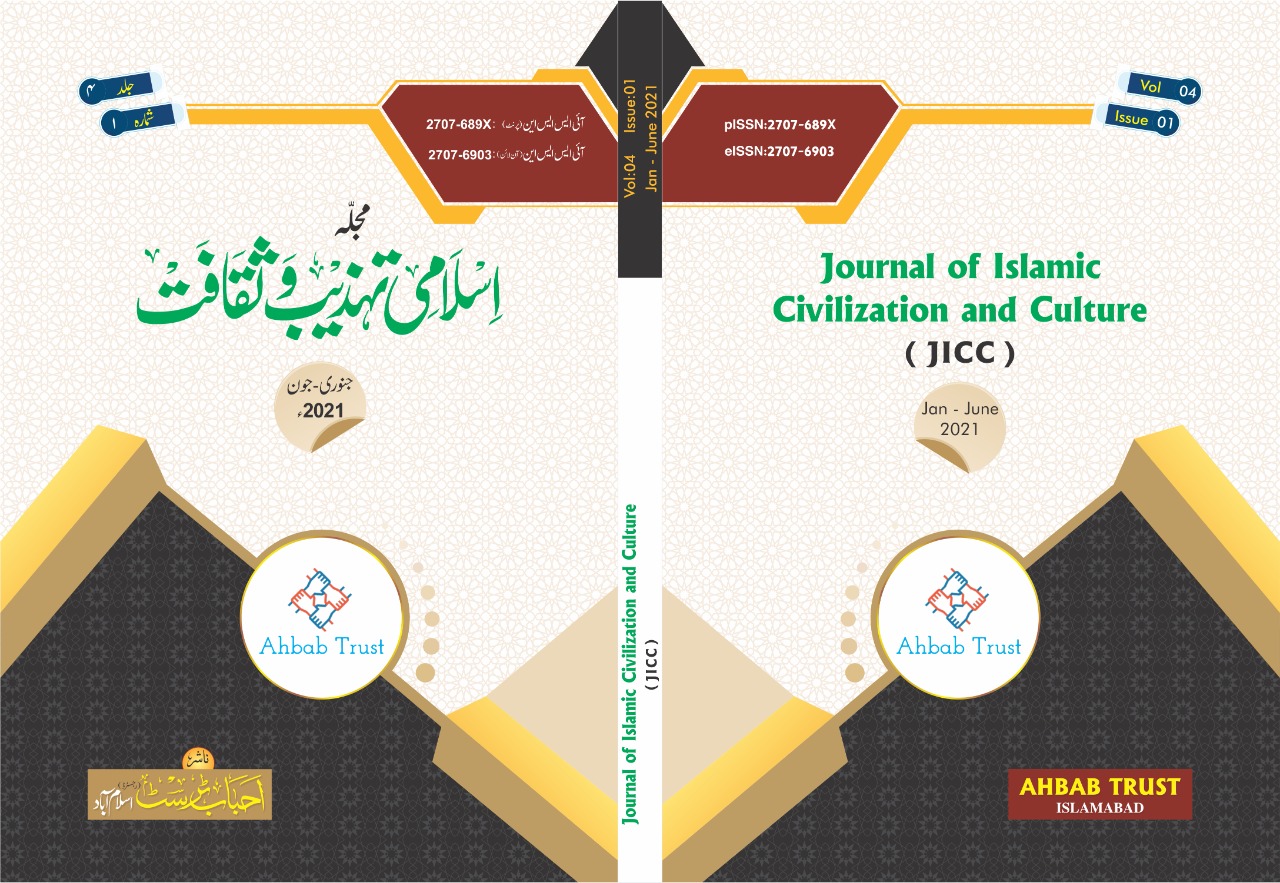پاکستانی دستور میں سیاسی انتظامیہ کا تصور رعایت اسلامی تعلیمات کی روشنی میں تحقیقی جائزہ
The concept of concession of political administration in constitution of Pakistan, An analytical study in the light of Islamic teaching
الملخص
The group of people who run the state affairs is called the administration. In Pakistan here are two types of administration, one is called political administration and the other is called non-political (civil service) administration. - Rules and regulations are formulated so that they can run the country management in a systematic manner. The rules which are made for political administration in Pakistan include rules regarding their rights, duties, powers and protections. The rules that exist in Pakistan for the protection of political administration include privileges, exceptions, protocols, concessions, and rules governing arbitration and discrimination.
In this research article, the concept of immunity in administration is selected and it is sought to see what are the rules of concession regarding the administration of Pakistan and how the administration uses these rules. The concept of concession is related to the teachings not only in religious matters but also in concession for rulers regarding state administration. And legal matters include a discount to the administration rules difficulty in meeting the state, its explanation equality and legal requirements which the misuse of these laws countless. This article examines the exemplary rules of Pakistan's political administration in the light of Islamic teachings, as it has been observed that the administration uses the laws recklessly, including obtaining allowances despite rights, non-participation in parliamentary meetings, Spousal privileges, freedom of expression in parliament and the exclusion of judicial accountability, etc. It is important to ensure the optimal use of these laws and the unnecessary exemptions must be changed by legislation.





